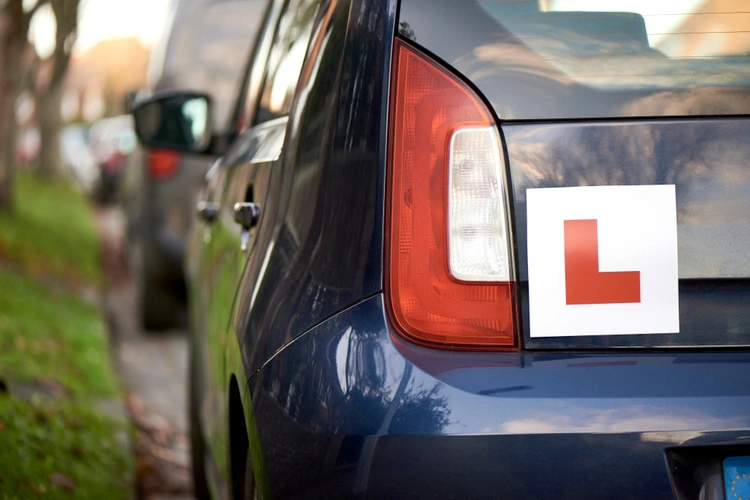What if you’ve not passed your test yet, or don’t have a licence at all? Don’t worry, it may not be the end of the road. Some lenders will approve car loans for people with provisional driving licences, or no licence at all. But remember that you do need a provisional driver’s licence before you can get behind the wheel and take lessons or practise.
Even so, it can be more difficult to get car finance without a driving licence, not least because the lender will want to ensure that your reason for taking out the loan is legitimate. If you’re a young driver with little or no credit history, they also won’t be able to tell if you’d be a responsible borrower. Both factors make you a riskier proposition for lenders and might limit the amount you can borrow if you are approved.
Types of car finance for provisional licence holders
If you have a provisional driving licence, no one would blame you for wanting to buy a car so you learn to drive at your leisure and can hit the road as soon as you pass your test. Perhaps you’ve fallen in love with your instructor’s vehicle and want to drive the same model, or maybe you need a car straight away to get to work or university.
It’s important to remember that it’s illegal for you to drive alone as a provisional licence holder, even if you own your own vehicle. Whenever you’re behind the wheel, you must be supervised in person by someone who is over 21 years old, qualified and insured to drive the vehicle you’re in, and who has held a full driving licence for the previous three years (from the UK, EU, Iceland, Liechtenstein, Norway or Switzerland).
While finding car finance with a provisional licence can be tough, it’s not impossible. But what type of car finance could be best for you?
Hire Purchase
Hire Purchase (HP) is one of the most popular types of car finance available. The loan is secured against the vehicle, which means you’re effectively hiring the car from the lender until you’ve paid for it in full. While you won’t own the vehicle during the loan term, once you’ve made the final payment and covered any admin costs, which may include a transfer fee, it’ll be all yours! Hire purchase agreements typically last between one and seven years, and zero-deposit options are available.
Personal Contract Purchase
Personal contract purchase (or PCP) car finance agreements are like hire purchase agreements in that you’ll pay fixed monthly repayments over a set period. However, unlike HP, you won’t necessarily own the car when your agreement ends. Instead, you can choose to hand it back, use any positive equity as a deposit towards a new deal, or buy it by paying the one-off balloon payment.
Will I need a guarantor to get car finance without a driving licence?
Obtaining car finance without a full driving licence can be difficult. If you’re a young driver with a thin credit file, there will be little to no indication of what kind of borrower you’ll be, either. Will you make payments on time? Are you financially responsible?
Guarantor car finance may offer a solution. This type of loan requires you to find a third party – usually a trusted friend or relative – to act as a guarantor. They will then be responsible to step in and make the repayments if you can’t. This can give lenders some peace of mind, as the guarantor agrees to repay your loan if you don’t. Becoming a guarantor is a big commitment; lenders will take the guarantor’s credit history into account, and their credit score may be affected if they do need to start covering your repayments. Plus, financial difficulties could put a strain on your relationship with your guarantor.
Can someone else apply for car finance in my name?
No, it’s against the law to apply for car finance on behalf of another person. This is called ‘fronting’ and is a type of fraud. Someone could contribute to your car, but your finance agreement must be in your name if you are the driver.
Can I apply for joint car finance?
Joint car finance is another type of car loan that can help people with provisional driving licences and a good credit history to buy a car. If it’s hard for you to get accepted for car finance without a full driving licence, making a joint application with a full UK licence holder could increase your chances.
Both applicants will be liable for the full loan amount and must pass certain eligibility checks to be approved. Some lenders also ask for other conditions to be met, such as requiring that both applicants share the same address. Joint liability will also mean that, if you find yourself unable to keep up with your monthly repayments, both of your credit files will be affected.
Is there car finance for young drivers?
While you can pass your UK driving test and hit the road at 17, you won’t be eligible to apply for car finance – or any credit, for that matter – until your 18th birthday. In fact, some lenders can’t offer loans to anyone under 21. Because of this, young drivers typically have little or no credit history, which can make it difficult to get car finance. If you’re a student without a regular income, it can be even harder!
Unfortunately, young drivers are often seen as one of the riskiest types of borrowers for lenders. A thin credit history makes it difficult to predict how you would act as a borrower. If you don’t have a steady income, it might be hard for you to keep up with your car finance payments. And young drivers are also the most likely to be involved in an accident.
According to road safety charity Brake, over 1,500 young drivers aged between 15 and 29 years are killed or seriously injured on UK roads every year, and road traffic accidents are the leading cause of death among this age group.
This doesn’t mean it’s impossible to find car finance as a young or new driver, especially if you opt for a guarantor loan or joint car finance. But make sure you work out your budget before taking out a car loan. As a first-time driver, you should also take into consideration additional costs, such as insurance, road tax, MOT, servicing, maintenance, repairs, and fuel.
How can I improve my credit score?
No matter whether you have a full UK driver’s licence or are looking for car finance with a provisional license or none at all, a good credit score can increase your chances of getting accepted for a car loan.
If you’re wondering how to improve your credit score, there are several steps you can take - even if you’ve just turned 18 and are building your credit score from scratch:
Check your credit score regularly
Checking your credit score with each of the UK’s three main credit reference agencies is a good place to start. You can use a service like CredAbility to check your score for free. Look out for any mistakes, missed payments or credit applications that you don’t recognise. If something is wrong on your report, raise it with the relevant agency as soon as possible.
Pay all bills on time
We know it’s not always easy but missing even one payment can negatively affect your credit score. If you find it tough to remember when your bills are due or they land at the end of the month when you’re waiting for payday, try setting up direct debits or moving your payment date to the same day each month to stay on track.
Don’t make a lot of applications at the same time
Each time you apply for credit, the lender will leave a hard search on your credit file. Several hard searches in a short amount of time can affect your score, as it can lead lenders to worry whether you’re trying to take on too many financial commitments at once. Try to leave a gap between applications if possible, especially if you’ve recently been refused credit.
Don’t use all your available credit
Maxing out your credit cards every month could harm your credit score. Using a smaller percentage of the total credit available to you shows that you are a responsible borrower. This is also one of the reasons why closing an inactive credit card may not improve your score, as it reduces the amount of unused credit you have available.
Register to vote
One of the easiest ways to improve your credit score is to register on the electoral roll. This is free and can be completed online. Make sure you register every time you move house, even if you’ve gone to university and are living in student accommodation.
Get car finance up to £100,000
- Check your eligibility without impacting your credit score
- No deposit needed
- Rates from 9.9%* APR
*Representative example: Borrowing £6,500 over 5 years with a representative APR of 19.9%, an annual interest rate of 19.9% (Fixed) and a deposit of £0.00, the amount payable would be £166.07 per month, with a total cost of credit of £3,464.37 and a total amount payable of £9,964.37. Rates may differ as they are dependent on individual circumstances. Subject to status. We're a credit broker, not a lender.
Disclaimer: All information and links are correct at the time of publishing.




